Feeding Eggshells to Chickens
In the world of chicken keeping, the idea of feeding eggshells back to chickens might sound counterintuitive at first. However, this practice has gained popularity among poultry enthusiasts for its numerous benefits. Today we will look at the hows and whys of feeding eggshells to chickens, shedding light on a sustainable and economical approach to flock management.

Why Feed Eggshells Back to Your Chickens?
- Calcium Boost: Eggshells are an excellent source of calcium, a vital mineral for laying hens. Calcium is crucial for the formation of strong eggshells, and providing it back to the chickens in the form of crushed eggshells helps replenish the calcium they expend during egg-laying.
- Preventing Egg-Eating Behavior: Chickens may develop the habit of eating their own eggs if they lack sufficient calcium in their diet. Supplementing with crushed eggshells reduces the likelihood of egg-eating behavior, ensuring more sustainable egg production. This is the opposite of what many people think. Often people think if you feed eggshells to your chickens they will get a taste for them and start eating their own fresh eggs. This is simply not true.
- Environmental Sustainability: Feeding eggshells to chickens promotes a closed-loop system, where waste is recycled within the flock. Instead of discarding eggshells, you’re turning them into a valuable nutrient source for your chickens.
- Cost-Effective: Incorporating crushed eggshells into the feed is a cost-effective way to boost calcium levels in comparison to commercial calcium supplements. It’s a natural and economical solution for backyard chicken keepers.
Why Do Hens Need Calcium?
- Eggshell Formation: Calcium is a vital component in the formation of eggshells. Hens lay eggs with hard shells, and calcium is necessary for the process of shell formation. If hens don’t receive enough calcium in their diet, the eggshells may become thin and brittle. You may also notice eggs with no shell, just a membrane.
- Bone Health: Calcium is essential for maintaining strong and healthy bones in hens. Hens that do not receive sufficient calcium may experience bone-related issues, such as weakness and fractures. This is particularly important for laying hens, as the demands for calcium increase during the egg-laying period.
- Muscle Function: Calcium is involved in muscle contraction and nerve transmission. Adequate calcium levels are necessary for proper muscle function, including the muscles involved in egg laying. This helps in ensuring smooth and efficient egg-laying processes.
- Reproductive Health: Calcium is linked to the overall reproductive health of hens. It plays a crucial role in the functioning of the reproductive organs and ensures that the hen is capable of producing and laying eggs successfully.
How Should You Prepare Your Eggshells?
You will likely read several tutorials that instruct you to dehydrate or bake your eggshells prior to feeding them to your chickens. This idea comes from the fear of exposing them to germs or bacteria. The truth is if the eggs came from them and are fresh, you really shouldn’t fear them being exposed to any unknown bacteria.
Please note: You really shouldn’t feed eggshells to your chickens from store-bought or even neighbor-bought eggs. There is the potential for exposing them to something they are not used to. Always feed your own eggshells back to your own chickens. Lisa Steele from Fresh Eggs Daily confirms this in her Myth Busting Post.
Steps I take for Feeding Eggshells Back to My Chickens

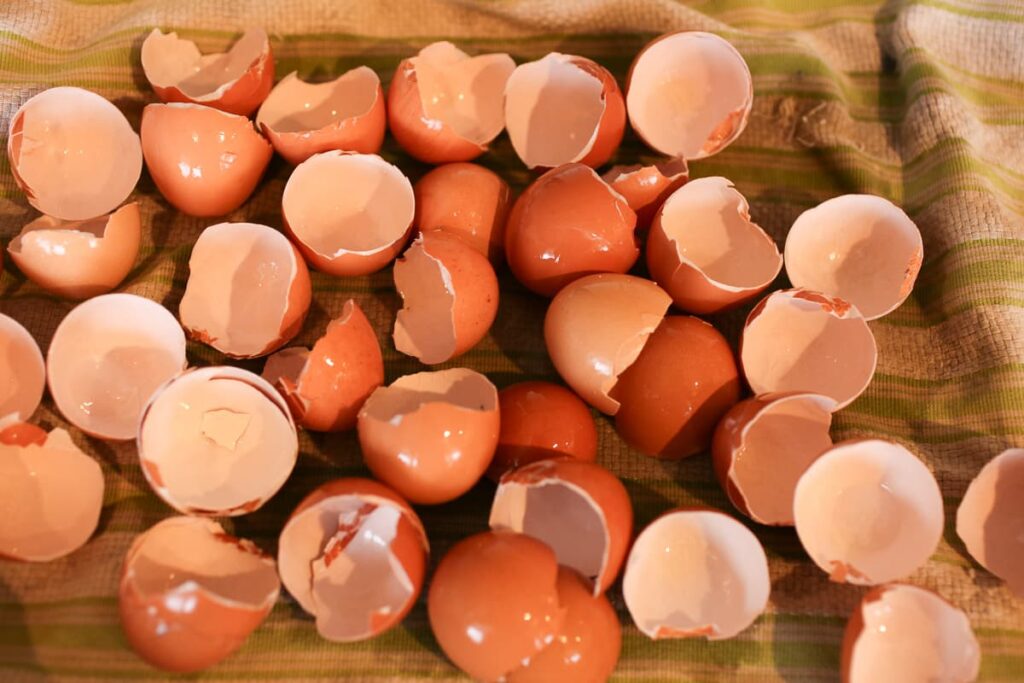

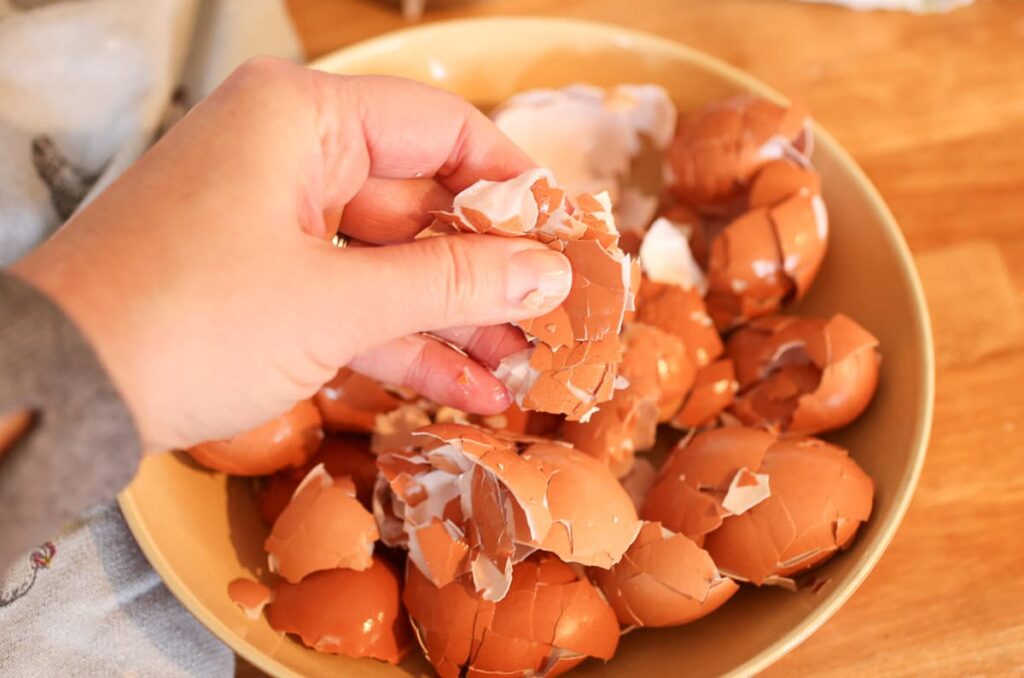
- I keep a container on the counter for eggshells. After we cook breakfast or lunch or whenever we use eggs, we toss the shells in that container. By the end of the day we have a pretty good collection of shells.
- I rinse those shells in the sink with fresh water. I pull out any membranes just to allow them to dry faster. You do not have to do that. Then I dump the eggshells out onto a towel to dry overnight.
- The next morning we crush them up and feed them to our chickens when we take scraps out. You can crush them with a hard object like a measuring cup or you can just use your hands. The pieces really don’t have to be tiny. The chickens can chomp them up just fine.
- If you just have a few shells and want to dump them out with your regular chicken scraps, go ahead. You really don’t have to wash and dry them, it just makes it easier to crush up when they are dry.
How Should You Feed the Eggshells to Your Chickens?
Eggshells or other supplements should be offered “free-choice”. This means that you should not mix the eggshells or other supplements in with the feed. They should be offered separately so that if the chicken needs it she can choose to eat it.
We once bought some chickens from an organic egg farm. They get rid of their chickens when they are around 14 months old, they are past their prime for commercial egg production. For home production, they are just fine. However, we found that the hens were very deficient in calcium. We didn’t have enough shells to feed back to them so we gave them oyster shells. They gobbled them up initially but once they were stronger, they began to leave the shells altogether. They have an interesting ability much like cattle to know what they need!
Check out my other posts on laying hens!

Check Out My Shop with My Homestead Planner

Feeding eggshells to chickens is a simple yet effective practice that contributes to the overall health and well-being of your flock. By providing a natural source of calcium, you not only support strong eggshell formation but also reduce the chances of unwanted egg-eating behavior. This sustainable approach aligns with the principles of responsible chicken keeping, creating a win-win situation for both chickens and their keepers.
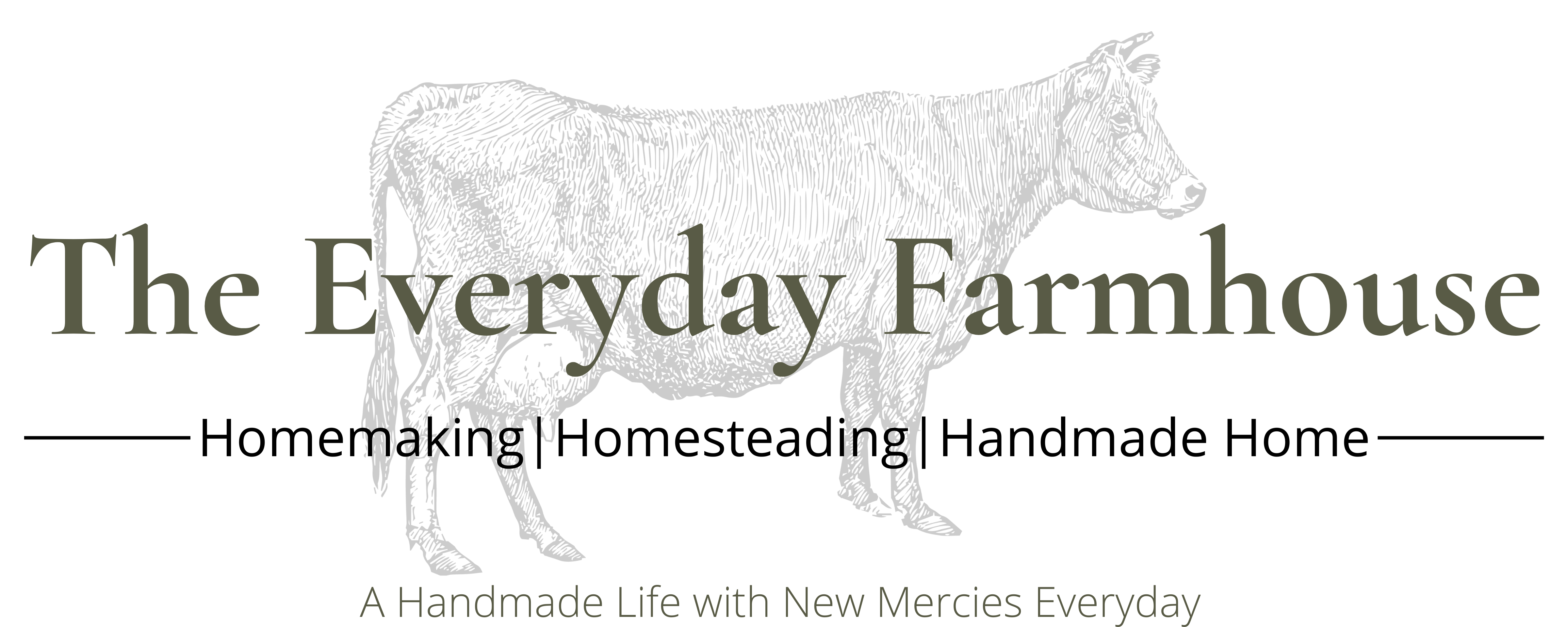
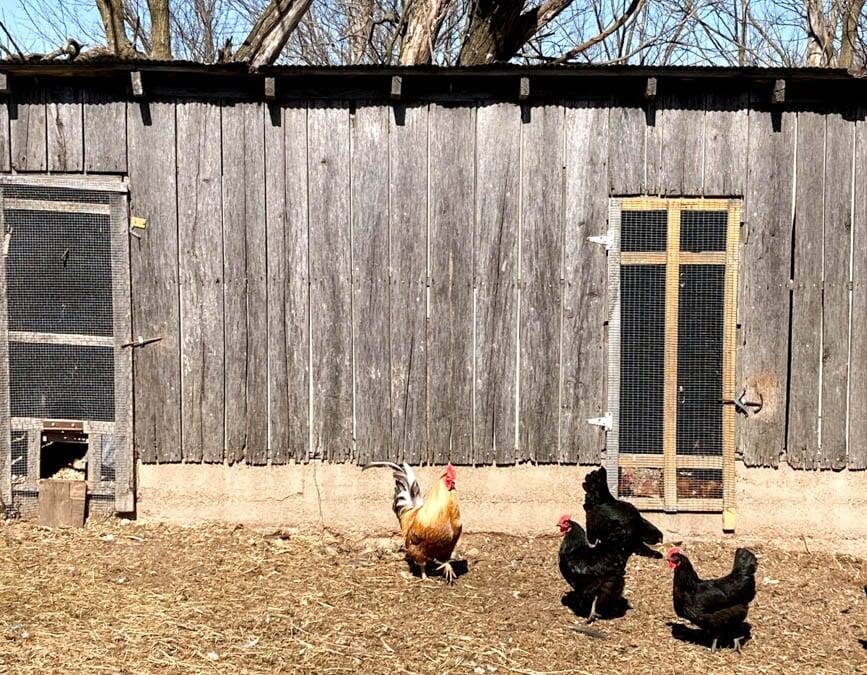
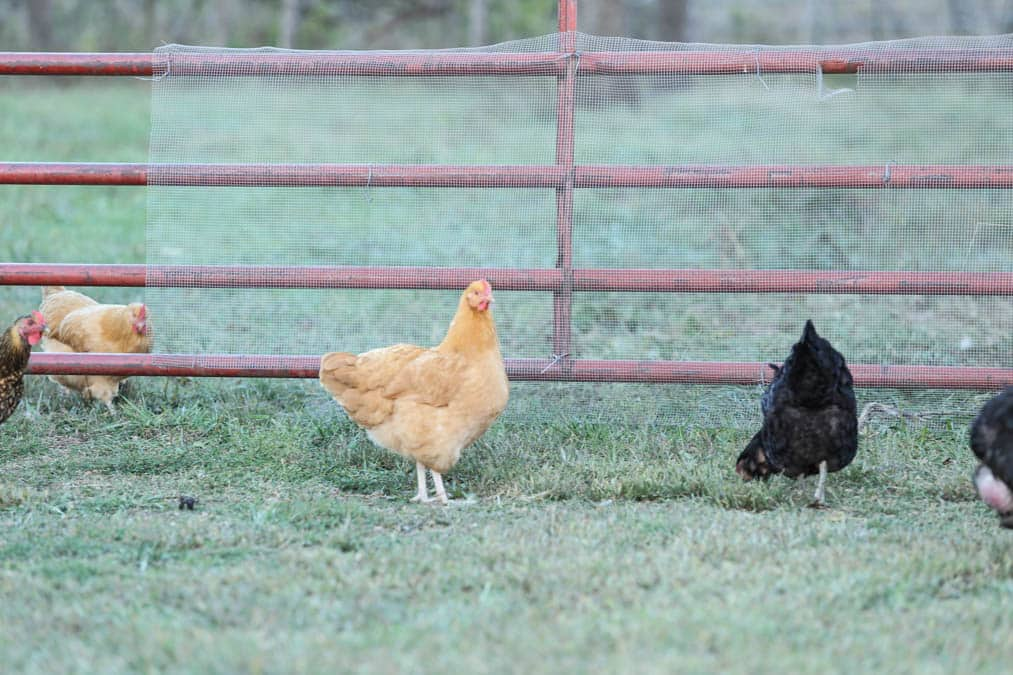
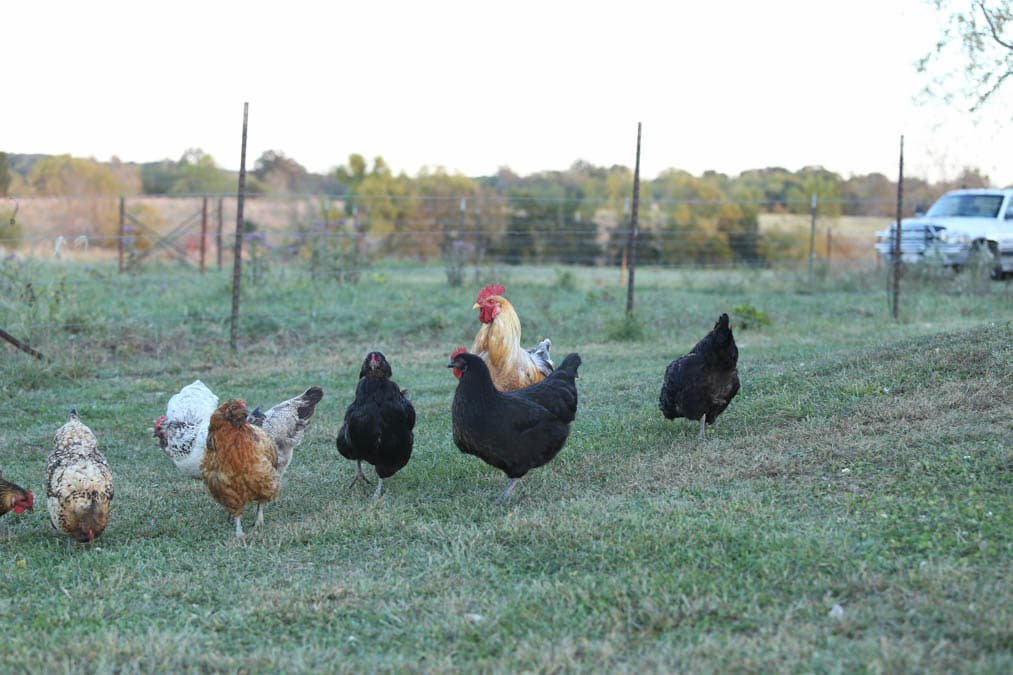
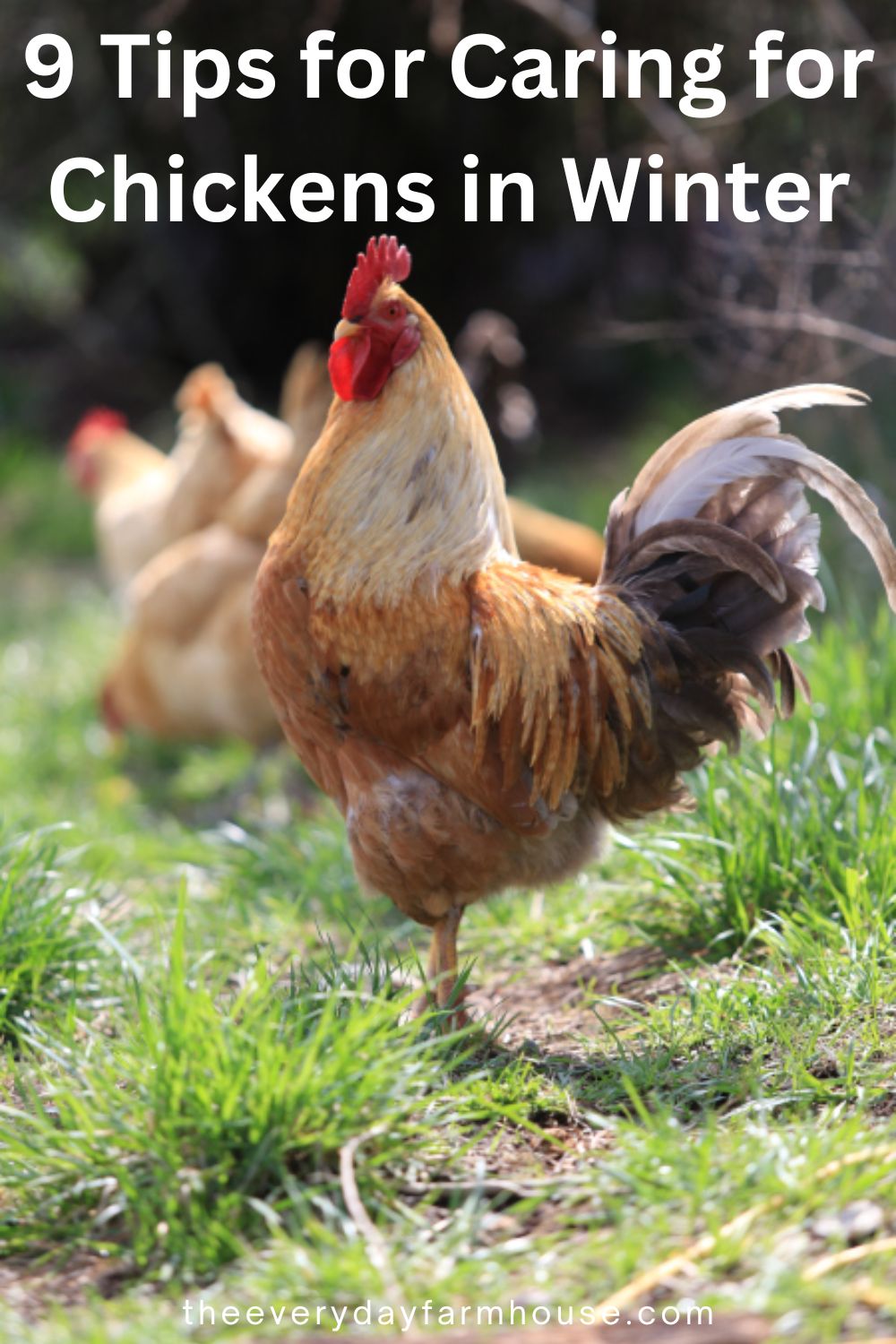

my chicken loves these eggshells and eats a lot every day. how many eggshells can a chicken eat each day? I’m afraid she’s eating too much.
thanks
Hi there, it’s hard for me to know what you mean by a lot. Eggshells should be fed free choice meaning, not mixed with the feed. I would fill a separate container or sprinkle on the ground approximately a ladle full each day. Usually a chicken will not eat more than they need. Very young pullets and roosters do not need egg shells as they are not laying eggs, therefore they don’t need a calcium supplement. Hope that helps!
a fox has been attacking my flock, so I only have one chicken right now. if I fill a bowl with 1 or 2 crumbled egg shells, she will eat them all every day, so now I only put out out 1/2 shell at a time and she gobbles it up. the shells of the eggs she lays seem strong. I’m trying to decide how many eggshell per day would cause calcium toxicity
Unfortunately I cannot find a specific number of shells, I’ve searched my books. It is my understanding that toxicity only occurs when the calcium supplement is mixed in with the feed. Most commercial feeds already have some sort of calcium supplement anyway. If you are offering it free choice, she really should only eat what she needs. One or two shells shouldn’t be overdoing it. Their bodies produce the eggs overnight so you may notice that she gobbles them up later in the day? I’m sorry I cannot give you a more solid answer.
reply won’t post